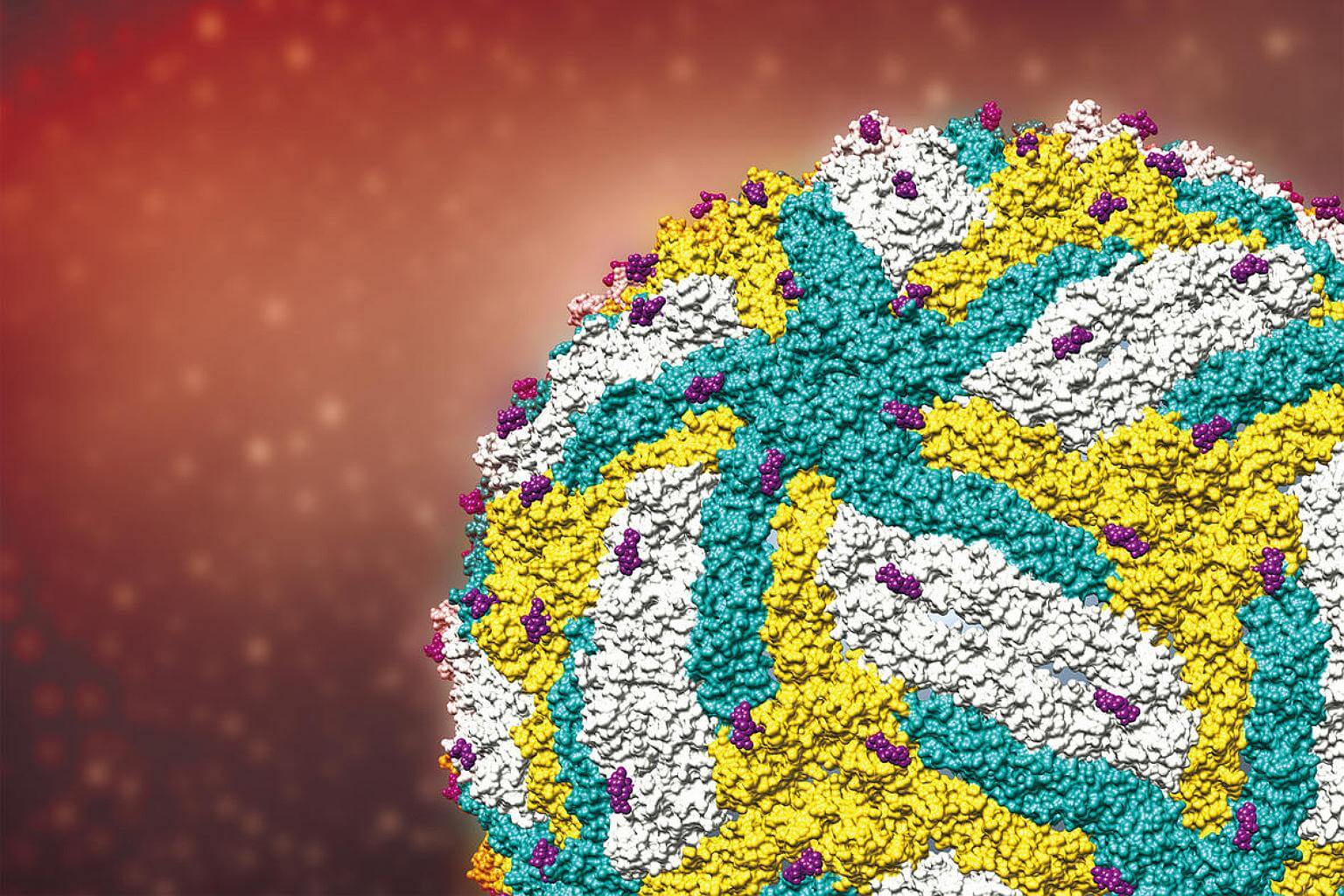Anti-tapeworm drug found to block Zika in lab experiments
Sign up now: Get ST's newsletters delivered to your inbox

An artistic rendering of the Zika virus structure.
PHOTO: DR GUNTER FIBRIANSAH/DUKE-NUS MEDICAL SCHOOL
A drug used to kill tapeworms has been found to stop the Zika virus from replicating in lab experiments.
The discovery by scientists in the United States was reported on Monday in the journal, Nature Medicine.
However, the drug's effect has not yet been shown to work outside the laboratory, in actual humans, and doctors said Singaporeans should not rush out to try and obtain this drug after the Zika outbreak here.
The drug, Niclosamide, is available in Singapore only on a named-patient basis, meaning that it is specially imported when a specific patient requires it.
Dr Leong Hoe Nam, an infectious diseases specialist at Mount Elizabeth Novena Hospital, said: "You cannot get it immediately and certainly (not) without a prescription."
He added that although the drug should be safe for pregnant women, he would advise against taking unnecessary medicine.
The Ministry of Health did not reply to queries by press time.
Niclosamide is approved by the US authorities for treating worm infections in both humans and livestock.
In the US, Niclosamide was previously shown to be safe for pregnant women, which may help in its rapid deployment to treat Zika infection, according to the team, who were from a range of institutions.
"Our findings... should significantly advance current ZIKV (Zika virus) research and have an immediate effect on the development of anti-ZIKV therapeutics," said the US team.
But additional animal studies and human clinical trials are needed, according to co-author Hongjun Song, a virologist at Johns Hopkins University. "There is no evidence yet that Niclosamide is effective in the body," he told the media.
The scientists also found another class of drugs that stopped the Zika virus from killing foetal brain cells, under lab conditions - although they do not prevent the virus from replicating.
The most powerful of these is a compound called emricasan, which is being evaluated in clinical trials in the US for treating hepatitis C.
But the scientists added: "Whether it is safe to use emricasan during pregnancy for ZIKV infection in humans will need to be evaluated in preclinical toxicology studies and in clinical trials."


